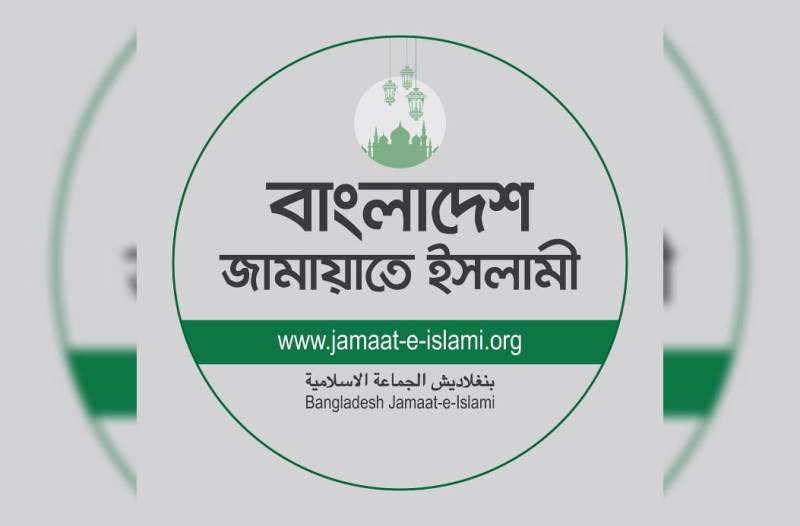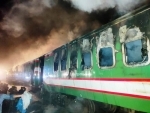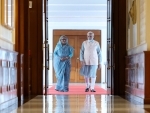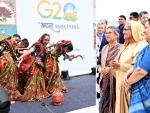Bangladesh
 Jamaat Webinar
Jamaat Webinar Webinar held on Jamaat-e-Islami, panellists discuss outfit's role in Bangladesh's political scene
Dhaka, November 16: At a Democracy Forum webinar on 14 November 2023, titled ‘Jamaat-e-Islami, Bangladesh – the subcontinental Brotherhood’, speakers expressed divergent views on whether the rise of Jamaat-e-Islami, Bangladesh would take the country in a regressive direction, or have the potential to participate in the democratic process.
TDF President Lord Bruce welcomed panellists to the webinar, which examined the circumstances surrounding the re-emergence of Bangladesh Jamaat-e-Islami (BJI) as a democratic movement, after a decade of political isolation.
He spoke of the political rally held by Jamaat-e-Islam in Dhaka in June this year that appeared to signal a revival in its prospects as a political force. Referencing Jamaat’s history, he outlined how it was established in 1941 and is a movement dedicated to pursuing the ideal of “Hakimiya” to ensure the incorporation of Islamic ideology into all aspects of state governance.
He detailed Jamaat’s opposition to Bangladeshi nationalism to the extent of colluding with the Pakistan army during the War of Liberation in 1971 and participating in the ensuing genocide and ethnic violence and spoke of how several of its leaders subsequently have been tried and convicted for war crimes.
Although widely credited today as Bangladesh’s most populous and arguably best-organised political movement, Jamaat has not been close to exercising power since 2006 when it participated in the BNP (Bangladesh National Party) led government.
Lord Bruce highlighted how the record of Jamaat as a responsible political party and coalition partner serving in the former BNP government has been marred by evidence of violence and intimidation and how for the past 15 years, Jamaat has been proscribed as a political actor.
Dr Shafi Mostofa, Associate Professor of World Religions and Culture at the University of Dhaka; and an Adjunct Lecturer at the University of New England, Australia looked back at Jamaat’s history, agenda and strategy, as well as on its controversial role in Bangladesh’s 1971 War of Independence.
He considered the organisation’s contribution to democracy; how Jamaat became king maker and an important factor in Bangladeshi politics and how Jamaat has been used in Bangladesh politics by secular parties. He spoke of how the party is interconnected to geopolitical factors and how nationalist and secular failures allowed Jamaat-e-Islami to flourish. Referencing the rise of political Islam, Dr Mostofa discussed Jamaat history in which its stated goal is to embrace Islam, covering all material and spiritual aspects of human life guided completely by the Quran.
He spoke of the organisation’s strict hierarchical structure through which its people are controlled; its disciplinary training, its totalitarian ideology, as well as ideological indoctrination – it is a religious duty to become part of Islamic political parties.
Explaining the factors behind the party's continued appeal, he detailed how Jamaat-e-Islami has been involved in social welfare projects to establish links with common people reaching out to the diaspora for funding and support and spoke of how Jamaat-e-Islami's skill in using social media and other platforms is furthering its aims.
He also argued that Jamaat has accepted democracy and is, to some extent, contributing to democratic practices within Bangladesh.
Mohammed Sinan Siyech, PhD Candidate, Islamic & Middle East Studies Programme at the University of Edinburgh, examined Jamaat-e-Islami’s transnational connections, and its organizational structure in Bangladesh.
He spoke of how political Islam is transnational with different manifestations to counter pan Arab nationalism. He highlighted how Indian Jamaat has tried to distance itself from Bangladeshi & Pakistani Jamaat who are influential in the UK. He argued that by dividing India, Bangladesh & Pakistan, Jamaat’s success had been stifled.
He spoke of the need to distinguish between political violence and terrorism and said that while Jamaat is trying not to support certain terror groups, where there is a mobilising force, there is always scope for loss of control and violence and that the extent to which this is sanctioned by Jamaat should be viewed in light of the affect of political circumstances upon the organisation. Explaining how Jamaat has survived long periods of proscription, he detailed how the party has been involved in various social initiatives (including education), helping to expand its outreach and has acquired resources from many different sources.
Dr Maidul Islam, Assistant Professor of Political Science, Centre for Studies in Social Sciences, Calcutta, assessed the influence of Jamaat-e-Islami in Contemporary Bangladeshi Politics, 2008-2023, focusing on the more recent electoral results, the crisis of Jamaat and the possible challenges the organisation faces in contemporary Bangladesh. He also asked whether Jamaat still has any real potential to revamp itself and make a mark in Bangladesh politics by using an alternative platform and making tactical social and political alliances.
He spoke of Jamaat’s three-tier organisational structure and how in its early days the party was opposed to Nehru’s secular message. Considering its prospects in the next election, he spoke of how it has been split between both extremist and more moderate elements, of which some have supported Islamic militia. He believes that the ideological position of Jamaat means that it will not make any significant contribution to a progressive Bangladesh, citing as an example regressive ideas about the role of females in politics.
In a tactical change, Jamaat’s leadership is now considering changing its position from the time of the Bangladesh Liberation War, although for some, its fundamental position has not changed, even though the rhetoric has become softer.
Asked by an audience member whether it were fair to describe Jamaat as a proxy of Pakistan and puppet of the ISI, he said that it was.
Dr Md Nazrul Islam, Professor of Political Studies, Shahjalal University of Science and Technology, Sylhet, Bangladesh explored the theme of Jamaat and democracy and spoke of opportunities for reconciliation between Jamaat and democracy within secular and semi-secular parties. He emphasised the need to understand the formation of Jamaat-e-Islami in the context of the anti-colonial movement in India in 1941. He explained that Maududi was extremist at the time because he didn’t believe Pakistan should be ruled by non-Islamic leaders. He was initially against Western democracy and human rights but softened, advocating for an Islamic democracy that differed from Western secular democracy.
Speaking about the position of Jamaat on democracy, he said that neither Islam nor democracy is monolithic, therefore political Islam is not monolithic either. He suggested, too, that Jamaat and democracy are not necessarily incompatible adding that the party has supported constitutionalism and electoral politics. He added that there is a growing interest in reform and a need to acknowledge the mistake made in 1971 in siding with the Pakistan army, even though some are not ready to do this. He warned of the danger of repressing Jamaat - it could lead to radicalisation and said that some elements of Western democracy are inherent in Islam.
Summing up TDF Chair Barry Gardiner spoke of ‘the paradox of tolerance’ – i.e. should intolerance be tolerated? - and of the need to leave religion in the private rather than the political sphere.
He argued that Islam has not gone through the same trauma as Christanity or Western nations. While Jamaat-e-Islami is providing some of the necessities of life – e.g. education, social aid, etc. – if, through democratic means, an Islamist party gains power, does it then become undemocratic and refuse to allow others to replace it? This is the danger.



